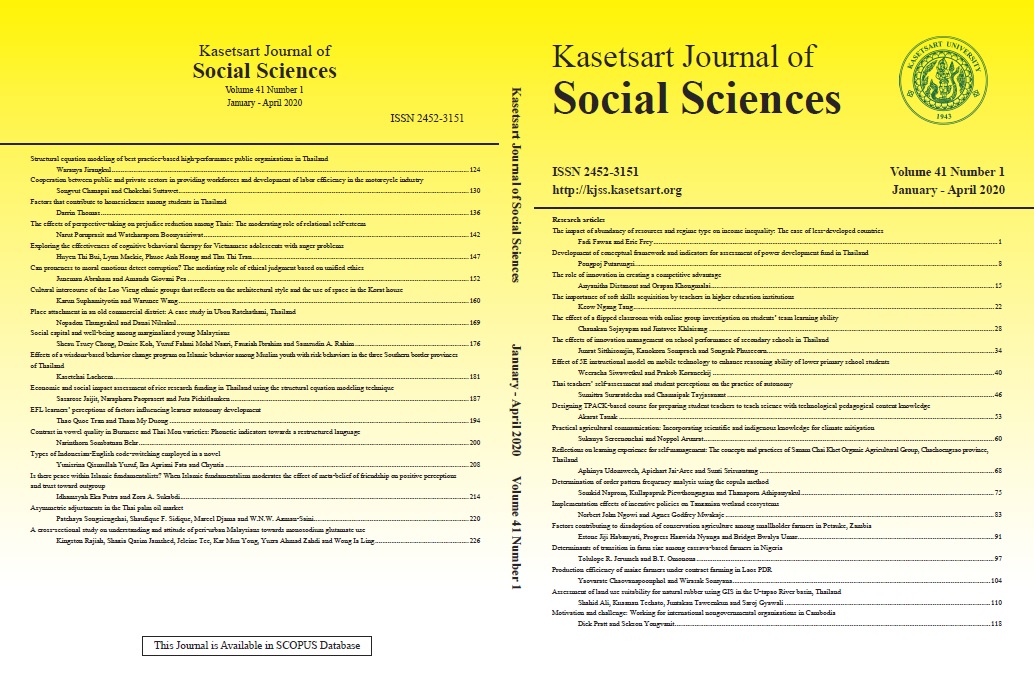Effect of 5E instructional model on mobile technology to enhance reasoning ability of lower primary school students
Keywords:
inquiry-based learning, mobile learning technology, reasoning ability, scientific education, 5E instructional modelAbstract
The objective of the study was to examine the effects of the use of a 5E instructional model on mobile technology to enhance the reasoning ability of lower primary school students (5EMR). The subjects of the study were 30 lower primary school students. The instruments employed in the study consisted of: 1) 5E on a mobile application; and 2) a learning management plan. The data collection instruments comprised: 1) a reasoning ability test; and 2) a reasoning behavior observation form. The results showed that the average reasoning ability of the lower primary student subjects before and after the lessons differed significantly (p ¼ .05). In addition, the observation of the reasoning ability of the subjects based on the 14-item checklist showed that the three most frequently exhibited behaviors found in the classroom were: conduct an experiment or an investigation to determine causes of a problem or a phenomenon (96.6%); cite empirical evidence obtained from an investigation or a laboratory experiment in concluding an investigation or responding to a question (96.6%); and utilize the scientific method in researching and investigating (93.3%). The results revealed that 5EMR had positive effects on reasoning ability, intrinsic motivation, reasoning behaviors, and achievement.
Downloads
Published
How to Cite
Issue
Section
License
Copyright (c) 2018 Kasetsart University

This work is licensed under a Creative Commons Attribution-NonCommercial-NoDerivatives 4.0 International License.
This is an open access article under the CC BY-NC-ND license http://creativecommons.org/licenses/by-nc-nd/4.0/










